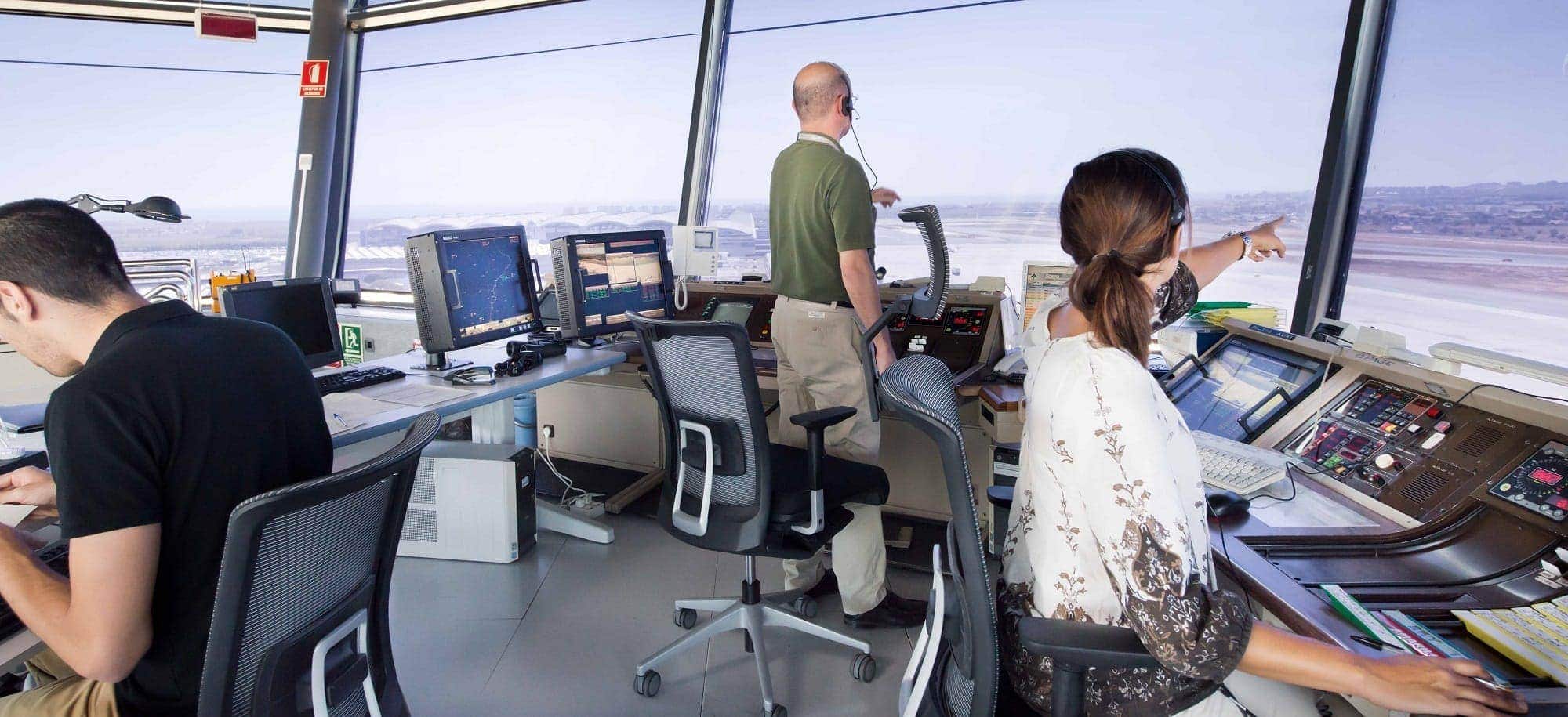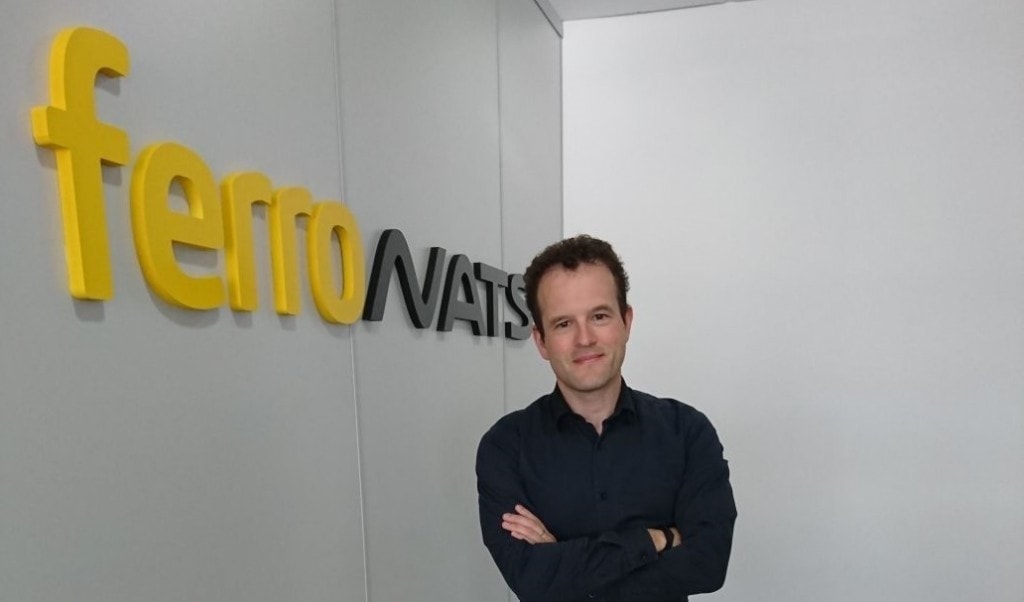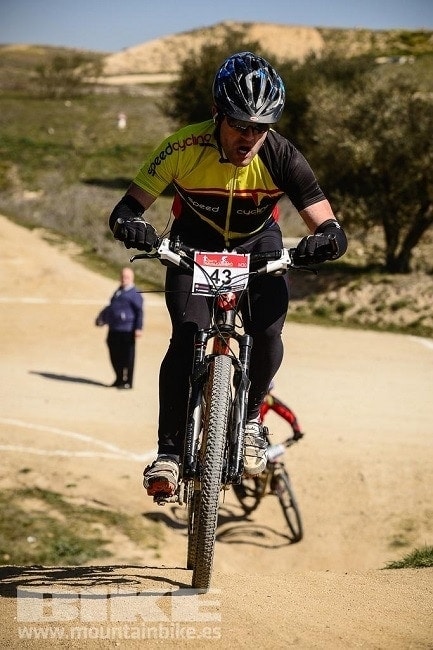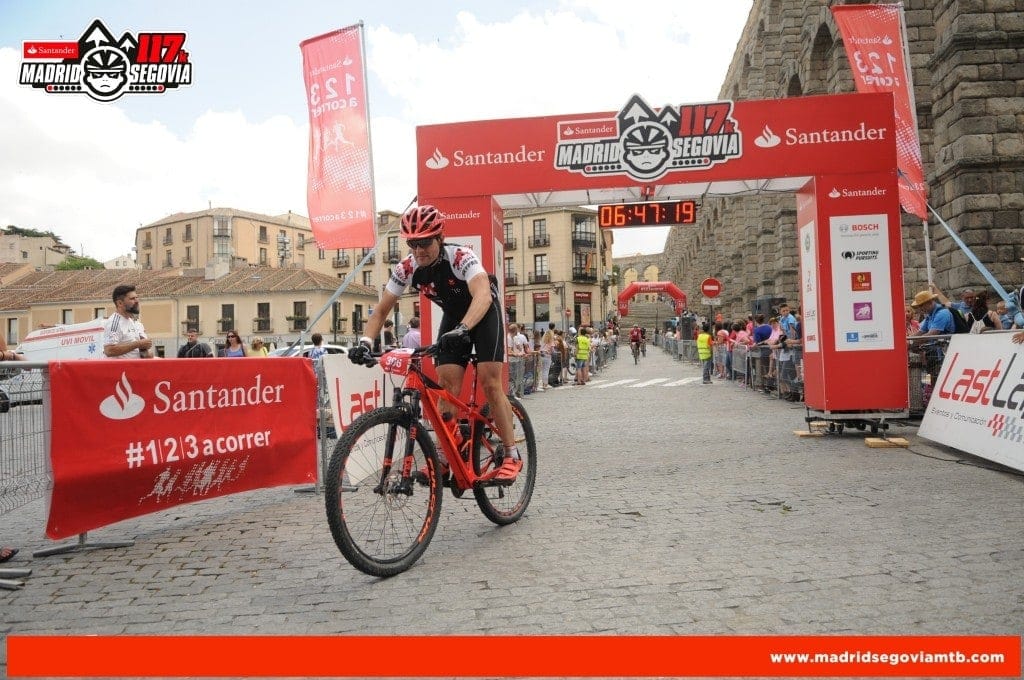
Do you still have to decide what to do “when you grow up”? Or perhaps you already decided that a long time ago. Was it easy, or not at all? Some people are very sure of what they want to be from a very young age (a doctor, teacher, gardener, chef…), but most of us are full of doubts. Choosing what to do, whether a university course or vocational training, what degree to study, wondering whether you’ll like it or not… these are questions that usually arise between the ages of 16 and 20. It is generally best to listen to what you like, to choose what you are best at, and take it from there. In the case of our colleague Alejandro Sastre, head of FerroNATS Technical Office, he liked maths and physics, and decided to study Aeronautical Engineering. One thing led to another, and for 5 years now he’s been working at FerroNATS, the Ferrovial company that provides air traffic control services in several control towers at Spanish airports.
He’s a fan of his profession, and admits that it causes him both fascination and stress. He believes in the importance of getting together a good team, and of continuous training to grow professionally. But he also has time for his family and for mountain biking, a sport in which he competes as an amateur. Get to know Alejandro… if you’re thinking of studying aeronautical engineering, who knows, he might just convince you!
A of Maths and science lover who become an aeronautical engineering
- What’s your name?
Alejandro Sastre García, but everyone calls me Alex.
- How old are you?
I don’t think that’s very old, but I’m surrounded by very young people…
- What area of the company do you work in?
The FerroNATS Technical Office, in air traffic control.
- And what do you do exactly?
I’m responsible for the department. Together with the rest of the team, we’re in charge of the technical elements of air traffic services in the control towers we manage.
- What does that actually mean? Could you explain what you do, what the work of the technical office is?
The aviation sector is one of the most regulated there is. National, European and international rules must be complied with. At the Technical Office we make sure that all procedures, manuals, plans, technical instructions, etc. that controllers use in their work are in strict compliance with all relevant regulations. And we also make sure that all the certificates that the air traffic authorities demand from FerroNATS in order to provide this service are valid and up to date.
- How long have you been in the business?
I started in 2003, so that makes 14 years. But it feels like I started yesterday…
- How long have you been with Ferrovial?
5 years.
- How would you explain what you do to your son?
My son’s 6, so when he asked me for the first time I had to say simply that I worked with aeroplanes. I thought that was the easiest thing to say, as explaining to him what I do exactly, even today, is quite complicated.
- Why did you decide this is what you wanted to do?
I was the first person in my family to go to university. I didn’t know anybody who worked in this sector. I only knew that I liked maths and physics, so I decided to study engineering. And why aeronautical engineering? I toyed with telecommunications and industrial engineering, but I decided to go for aeronautics because there were fewer professionals in the sector and so I thought it would be easier to find a job once I graduated.
- What was your educational plan for getting to where you are now?
I first studied aeronautical engineering (the name of the degree is different now). Once I was already working, I followed the Executive Management Programme at the IE Business School and Ferrovial corporate university.
- Tell us what your normal day is like.
Two words are enough: fascinating and stressful.
- So stress in the aviation sector is not a myth…
No, not at all… But as I say, there’s a dichotomy. On the one hand, it’s absolutely fascinating, because when you come to work each day you have a general idea of what it is you’re going to do, but as the service develops in each of the airports you end up working on many things you hadn’t planned. And it is also highly stressful because of this: it is difficult to plan time and resources when there are so many variations in day-to-day work. But you put a brave and cheerful face on it, although I admit I didn’t find it quite so easy to do in the beginning.
- What do you like best about your career?
Being able to work in a strategic sector, and one in which I believe we have led the way as a company.
- What do you like best about working with Ferrovial?
Ferrovial, as you know, is a very large company, with many people working on different things. And that’s just it, the opportunity to work with professionals who, whilst belonging to Ferrovial, work in other sectors and have at some point contributed to what we do at FerroNATS. I would also highlight the personal development processes that Ferrovial makes available to its employees.
- What project are you proudest of?
All the people who know me will recall that I have very often said that FerroNATS is for me a unique project which I have felt a part of from the very beginning. If I were to single out particular moments, perhaps the nights on which we made the transition to a new service provider, when we took on the management of the nine control towers we’re currently responsible for.
- What would you say to future generations to encourage them to take up this career path?
I would point out that aviation in a country such as ours is a growing strategic sector, where technological and human resources develop together, and that the challenges of the future are many and varied, so working in the sector will provide a very fulfilling career.
- If I wanted to take up your career, what would you advise me to study or do? What educational path should I follow?
Today there are more alternatives than there were before. In addition to engineering, there are other qualifications with less of a technical component. If we focus on a Technical Office such as the one I’m responsible for, my work team has been comprised by aeronautical engineers, telecommunications engineers and statisticians, as well as, obviously, air traffic controllers.
- Have you got any further studies in mind?
I would like to explore financial issues, as this is an area that I haven’t had the chance to focus on as much throughout my career.
- What do you like doing in your spare time?
In addition to spending time with my family, I train and compete as an amateur with my mountain bike.
- A book?
I’m currently reading “Planifica tus pedaladas” (Plan your Pedalling), which could be interesting for anyone who enjoys cycling.
- Taste in music?
The last record I bought was “United”, by Harem Scarem.
- A series?
For those who couldn’t watch it at the time: Dexter.
- A film?
I love science fiction. And so of course I have films like Matrix or Terminator in my collection. A bit less commercial and with a musical theme, I would recommend the film “Rock Star”.
- Are you one of those who organises events with work colleagues?
Not as much as I would like. But we also try to make sure we celebrate shared successes by going out for lunch or dinner together. And so I’m going to take this opportunity to thank all the members of my team and staff in the control towers for all their help in improving and moving forward both my professional and my personal development.
- Now that we know you’re a mountain bike expert, what would you say is more difficult: pedalling up a mountain, or managing the FerroNATS Technical Office?
Getting up a mountain! That’s something I have to do on my own, nobody will pedal for me. Managing the Technical Office is easier: you only have to choose the right people for your team, and they will make your daily job so much easier.








There are no comments yet